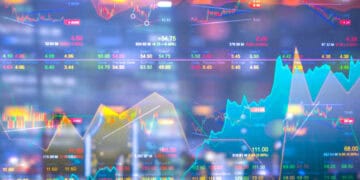The World Bank’s recent report, “Falling Long-Term Growth Prospects: Trends, Expectations, and Policies,” presents an in-depth assessment of long-term potential output growth rates in the global economy, particularly in the context of the COVID-19 pandemic and the geopolitical events like the Russian invasion of Ukraine. This report provides insights into the concept known as the global economy’s “speed limit,” essentially the highest sustainable long-term growth rate that does not trigger inflation.
Key Findings:
Projected Decline in Growth Rates: The report forecasts a significant slowdown in average global potential GDP growth between 2022 and 2030. The expected rate of 2.2% annually marks a decrease of about a third from the rate observed in the first decade of the 21st century. Similarly, developing economies are anticipated to experience a decline from an annual growth rate of 6% in 2000-2010 to 4% in the current decade.
Implications of a Slower Growth Rate: Indermit Gill, the World Bank’s Chief Economist, notes that the ongoing decline in potential growth could impact the global capacity to address various challenges like poverty, income disparity, and climate change. However, he also emphasizes that this trend is reversible through appropriate policy measures.
Potential for Reversing the Slowdown: The analysis suggests that adopting sustainable, growth-focused policies could enhance potential GDP growth by up to 0.7 percentage points, potentially bringing the annual average rate to 2.9%. This would transform the expected slowdown into an acceleration of global potential GDP growth.
Policy Recommendations: The report provides a range of policy options aimed at revitalizing long-term growth prospects. These include aligning monetary, fiscal, and financial frameworks; increasing investments, particularly in climate-aligned sectors; reducing trade costs; leveraging the potential of the services sector; and boosting labor force participation.
Focus on Global Cooperation: The necessity of international economic integration is highlighted, with emphasis on its role in driving global prosperity. Strengthening this integration is crucial for enhancing trade, facilitating climate action, and mobilizing investments towards achieving the Sustainable Development Goals.
Importance of Adapting to Economic Disruptions: The report also explores how short-term economic disruptions, like recessions and systemic banking crises, can have medium-term effects on potential growth.
Overall, the World Bank’s report presents a comprehensive overview of the challenges facing global economic growth in the near future. It emphasizes the need for robust policy responses and international cooperation to counter the anticipated slowdown and foster sustainable, inclusive economic development.
Breaking supply chain news is just a click away at The Supply Chain Report. Enhance your knowledge of international trade at ADAMftd.com with free tools.
#WorldBank #GlobalEconomy #EconomicGrowth #LongTermGrowth #GDPForecast #SustainableDevelopment #PolicyRecommendations #GlobalCooperation #EconomicChallenges #InclusiveGrowth















